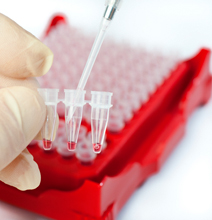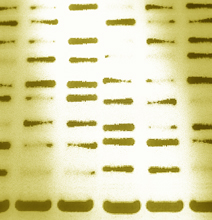Results
Genetic test results can take several months.

When they are ready, try to receive them with some tranquility.
Trust your doctor at the risk clinic, he/she is a professional trained in risk assessment and the best person to explain your results and advise on your options for the future.
The interpretation of a positive or a negative result depends on what test you took: a diagnostic or a predictive test (see table).
While in the predictive test, a negative result is a good outcome (it shows that the person does not carry the mutation behind the familial hereditary cancer), in the diagnostic one a negative result means merely that the mutation remains to be identified.
In fact, in a family with a strong history of colorectal cancer, a negative result in the diagnostic test suggests that this is either a false negative, or that the mutation associated with that cancer is in an unknown gene.
If that occurs, the family has to remain under close surveillance to reduce the future risk of disease.
| Positive result | Negative result | ||
| Diagnostic test | Meaning: | There is a mutation causing the cancer in the family, and, in particular, in the relative tested. | No mutation was detected that can explain the cancer seen in the family. |
| Measures: | Tested person : prophylactic and early detection measures are advised to reduce the risk of cancer in the future. Family:possibly of studying other relatives at risk. | Family: the mutation has not been identified, but the risk remains present. Surveillance and preventive measures need to stay in place. | |
| Predictive genetic test | Meaning: | The person tested carries the mutation. | The tested person is not a carrier, the familial mutation has been identified but has not been inherited by this person. |
| Measures: | Early detection and/or prophylactic measures are advised to manage the risk of cancer in the future. | The person can relax; his or her risk of cancer seems to be identical to the general population. No special measures need to be taken. The person should simply be included in the usual national screenings programs. |






